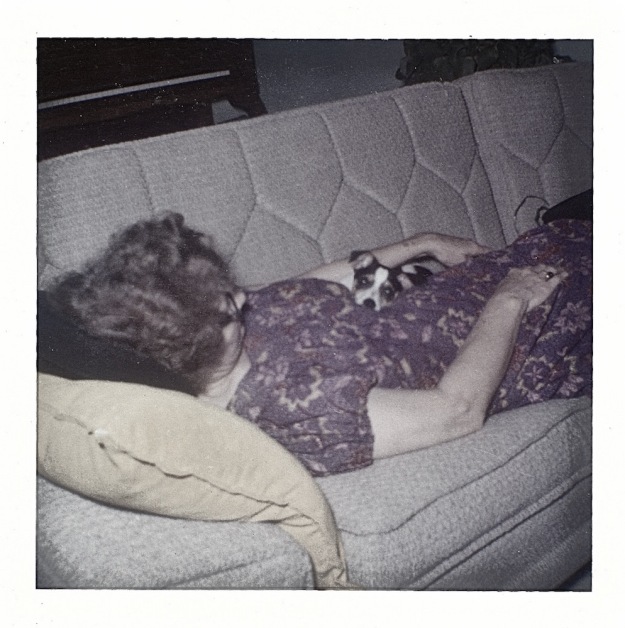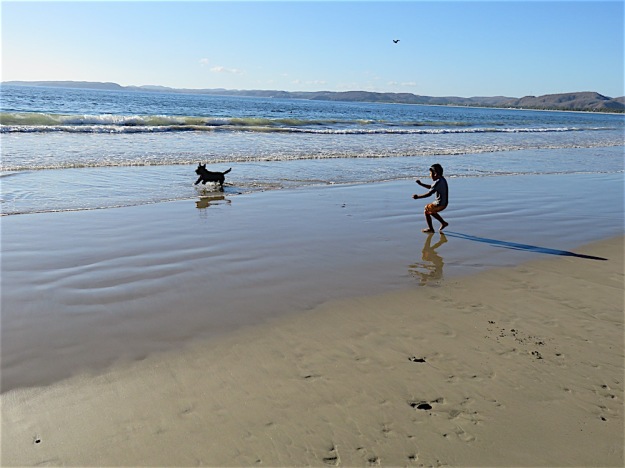The Prompt: By Heart—You’re asked to recite a poem (or song lyrics) from memory—what’s the first one that comes to mind? Does it have a special meaning, or is there another reason it has stayed, intact, in your mind?
Okay, I am writing this down by heart, as I remember it. Then I’ll find a copy and check how well I remember it, putting corrections in parentheses. Why do I remember this poem that was unfashionable even when I memorized it? One of her favorites, it was chosen by my mother for me to recite in a contest. I won with it at school, county and district level and then went to state level where I did not win. Probably my wrong choice to pronounce “lower” in a manner so as to rhyme with “hour!”
Okay, by heart, mind you, here is the poem:
The Children’s Hour
by Henry Wadsworth Longfellow
Between the dark and the daylight,
when the night is beginning to lower,
comes a pause in the day’s occupations
that is known as the children’s hour.
I hear in the chamber above me,
the patter of little feet,
the sound of a door that is opened
and voices, soft and sweet.
By my lamplight, I see in the darkness (from my study I see in the lamplight)
descending the broad hall stair
grave Alice and laughing Allegra,
and Edith with golden hair.
A whisper and then a silence,
yet I know by their laughing (merry) eyes
they are plotting and planning together
to take me by surprise.
A sudden rush from the stairway,
a sudden raid from the hall,
by three doors left unguarded,
they enter my chamber wall.
They climb up into my turret,
o’er the arms and back of my chair.
When I try to escape, they surround me.
They seem to be everywhere.
They almost devour me with kisses,
their arms about me entwine,
till I feel like the Bishop of Bingen
in his round tower (mouse-tower) by the Rhine.
Do you think, oh blue-eyed banditos, (banditti)
because you have scaled the wall,
such an old mustache as I am
is not a match for you all?
I have you fast in my fortress
and will not let you depart
but keep you captive forever (But put you down into the dungeon)
in the round-tower of my heart.
And there will I keep you forever,
yes forever and a day
till the walls have crumbled to ruin
and mouldered, in dust, away.
My mother told me her mother used to read this poem to her and her five sisters. (Her two brothers were probably off pulling pranks somewhere.) Whenever her mother would recite the line, “And Edith with golden hair” my mom would cry, because she had a sister named Edith, and my mom wanted golden hair as well.
Although I only met her once, when I was three, I believe my Grandmother was a kind soul and I can’t remember whether my mother told me or I imagined that my Grandmother then altered the line to read, “and Eunice with golden hair” as well.
Now, as to the lines or words I got wrong (after fifty-two years, as I believe I recited this when I was eleven) I am fairly sure that my mother changed that entire line I got wrong, thinking it wasn’t appropriate for a girl of 11 to say the words, “But put you down into the dungeon.” Mother knew best, even over such an illustrious poet as Henry Wadsworth Longfellow, a fact that probably stunned the judges and led to my eventual upset as South Dakota poetry champion of outmoded rhyme.
Now, please recite your biggest feat of memory for me in comments!!!

















































